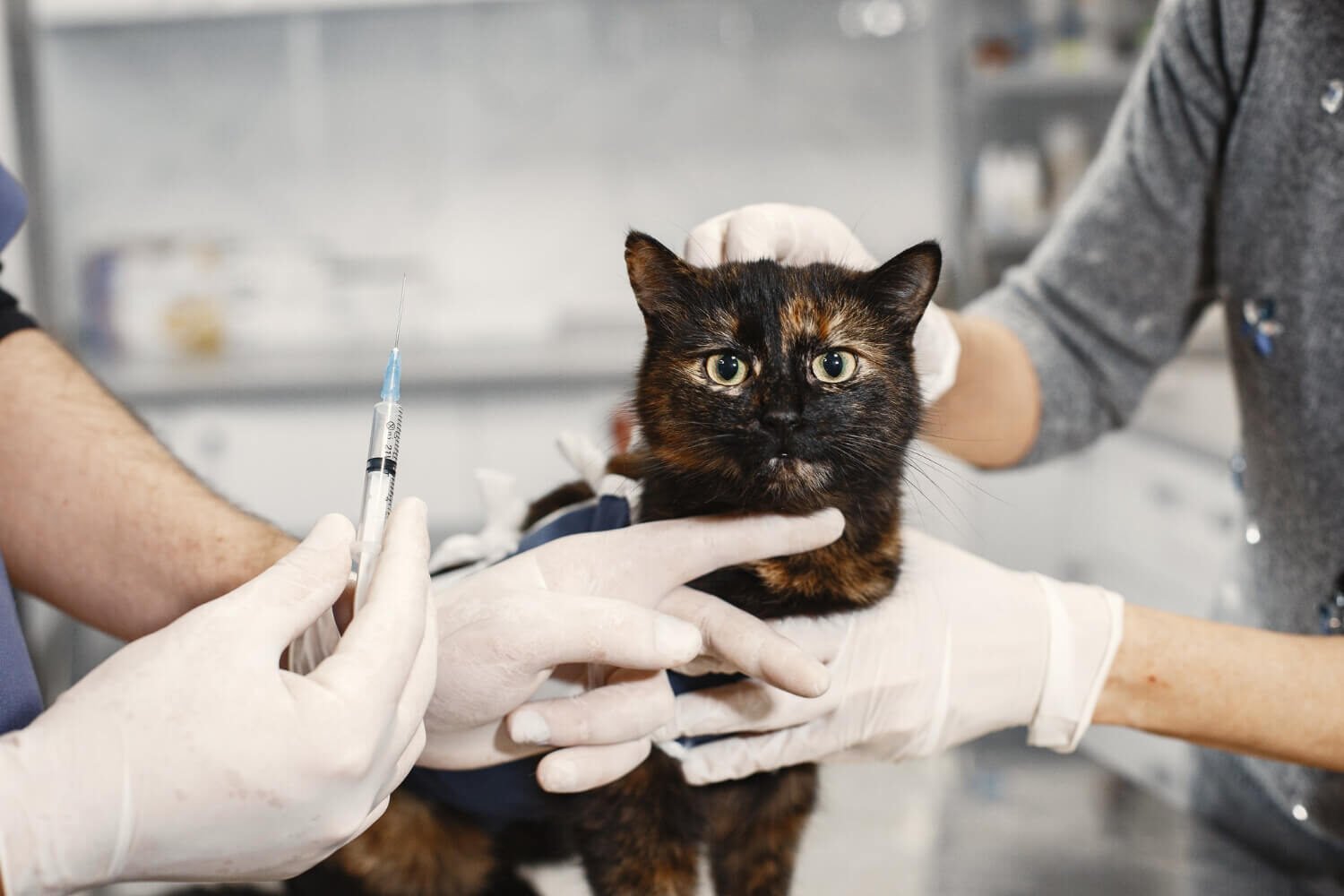Top 10 Pet Hygiene Products Every Pet Parent Needs
It is a fact of life, pets are cute, but also walking chaos machines. Muddy paws, shedding fur and the mystery smell sometimes makes it like a full-time job to keep them fresh and healthy. However, this is the good news, this does not mean that you have to go to a fancy grooming salon or stock up on wipes to ensure that your pet is clean. The secret is just to have the right hygiene products.
Whether it is a shampoo or a brush, a dental chew or deodorizing spray, the right essentials may be what counts. Not only does these keep your pet clean and comfortable but also helps prevent other health related problems such as infections, odor and skin irritation.
Here, we are going to deconstruct the essential hygiene items that every pet parent must have, answer the question of why they are important, and demonstrate how to select the most suitable ones for your pet.
Importance of Pet Hygiene
Good hygiene does not only mean that you keep your pet photoshop-ready, but it means that you keep them healthy and enjoy a long happy life. Pets like humans can be exposed to hygiene related conditions such as infections, parasites as well as dental diseases when they are not taken care of. It is a healthy pet, just a clean pet.
Proper hygiene is also a way of enabling you to notice the initial signs of a health issue. As an illustration, regular brushing may expose bumps, skin allergy, or ticks before it deteriorates. Keeping your ears, teeth and paws hygienic is a way of preventing the build up of bacteria and preventing discomfort whilst having your pet groomed keeps their coat clean and their mood lifted.
In addition to the health aspect, good hygiene is good in the entire household. A properly kept pet translates to reduced shedding, reduction in allergies and a home that is clean, and fresher smelling. It will be a win-win to you and your furry friend.
Why Pet Hygiene Products Are Essential
Having good hygiene does not just mean keeping your pet Instagram ready but keeping them healthy and living a long and happy life. Pets, as human beings, may develop hygiene-related complications such as infections, parasites, and dental problems when they are not taken care of regularly. I only have a healthy pet, which is a clean pet.
Proper hygiene also assists you to find out early symptoms of health issues. As an example, regular brushing will expose skin allergies, bumps, or ticks when they are not so bad. If you keep your ears, teeth, and paws clean, it helps to prevent the accumulation of bacteria and discomfort, and since your pet is groomed regularly, his coat remains glossy, and his professional attitude improves his mood.
Other than health concerns, good hygiene is an advantage to the whole house. When an animal is well groomed, it will shed less, eliminate allergens and will make the house look and smell cleaner. It is a win-win situation both for you and your furry friend.
Top 10 Pet Hygiene Products
It is important that every pet parent possesses a good hygiene kit – the one that can make your mascot appear clean, healthy and smell great (at least not like a wet towel). The top 10 hygiene items that any responsible pet owners should possess will be listed below.
1. Pet Shampoo & Conditioner
Man heads can even dry up your animal. The pet shampoos also have the pet PH tailored so as to avoid irritation. Fur is made untangled, soft, shiny and easy to brush using conditioners. Use non-paraben, mild, and products prepared using natural ingredients e.g. aloe vera or oatmeal.
2. Grooming Brush or Comb
It is not just on looks as brushing not only cleanses, but sheds and improves the flow of blood. Slicker brush can be used to brush long haired pets and bristle or rubber brush can be used to brush short haired pets. It is also a great bonding moment which your pet will (later on) enjoy.
3. Pet Toothbrush and toothpaste
Much attention is not paid to dental health which is important. To prevent the occurrence of tartar, bad breath and gum infections, enzymatic toothpastes and pet-safe toothbrushes are useful. Brush early enough, so that your pet is used to it.
4. Paw Wipes or Wash
You are touching everything with the paws of your pet, not dirty parks alone but the streets of the city. Cleaners may be given to pets on a soft wipe or paws, so that they can remove dirty and toxic chemicals on the pads. Use them each time you take a walk to keep off infections and clean floors.
5. Nail Clippers or Grinders
Too long nails become painful and pose a joint problem. A pet nail clipper/an electric grinder can be interesting in order to trim them at home. When rewarding your pet, you should always take your time before you can reward.
6. Ear Cleaning Solution
Mostly, bacteria are hiding in ears. Wipe the ear with a recommended ear cleaner to clear the ear of wax and debris. Ear infections and odor can be avoided by cleaning the ear on a regular basis, especially with floppy-eared breeds.
7. Deodorizing Spray/ Dry Shampoo.
Spray on the deodorizing on the days between baths or dust your pet with dry shampoo. Get alcohol-free and cancel-odor natural products instead of masking smell.
8. Dental Chews
The last option is dental chews, which is superior to brushing the pet. They help in teeth cleaning, breath freshening, and reducing the amount of plaque and they all fill their chewing urge.
9. Pet Bedding Cleaner/ Disinfectant Spray.
The source of germs and scents can be the bed of your pet. Clean the bed and maintain a clean and orderly bed once a week with a non-toxic and pet friendly disinfectant or bedding cleaner. Bonus: it will get rid of the fleas and mites.
10. Tear Stain Remover.
Pets which are most likely to have watery eyes or tear marks (mostly white-furred pets) are treated using a tear stain remover. Blot using a clean cloth and gentle motions not to cause irritation.
These ten essentials will eliminate all the relevant hygiene requirements, top-to-tail.
How to Choose the Right Hygiene Products for Your Pet?
It is not always the case that a product that claims to be pet safe is properly suitable for your pet. The selection of proper hygiene items presupposes the knowledge of their breed, type of coat, and their sensitivity levels as what can work with a Labrador may not apply to a Persian cat or a parrot.
The following are some of the things to consider prior to adding anything to your cart:
- Test Ingredients: Do not use products that contain alcohol, parabens, sulfates and artificial scent. Find hypoallergenic, natural formulas.
- Take into Account Coat Type: Long-haired ones require detangling shampoos and slicker brushes, whereas short-haired pets enjoy soft bristles and moisturizers.
- Match the pH Level: It is always better to use products designed to be used by pets, they have different pH in their skin as compared to humans.
- Vet-Approved Only: Choose those products that are suggested or tested by veterinarians, mostly sensitive pets.
- Allergy Awareness: Patch test Before applying a new shampoo or wipe, check whether you are allergic.
- Ease of Usability: Select tools (such as nail grinders) with safety guards or self-cleaning brush, which are easy to clean.
Life with your pet should not be something that causes stress in your life because of the hygiene products. Comfort, safety and quality should always be chosen.
Common Hygiene Mistakes to Avoid
The most affectionate pet owners might accidentally fail in the hygiene routine of their pet. The problem? Certain errors do not have an impact on health or skin immediately – however, in the long run, they can lead to severe problems.
The following are the best hygiene slip-ups that should be avoided:
- Human Products: Human shampoos and soaps tamper with the pH of the skin of your pet and will cause it to itch or have rashes. Always go with a specific pet.
- Overbathing: Excessive bathing will deplete the natural oils in your pets leaving them dry and flaky. Keep the optimum bathing schedule of your pet.
- Lack of Dental Care: Bad breath is not normal, it is an indicator of accumulation of plaque. It should be regularly brushed or given some dental treats.
- Ignoring the Ears: liquid and wax may lead to infections which are painful when not washed out.
- Miscutting the Nail: make sure you do not cut too low because you may end up bleeding and maimed- cut in small bits.
- Contaminated Grooming Supplies: It is possible to have dirty brushes, clippers, and wipes unless they are washed or changed periodically.
- Failing to Check the Expiry Dates: Expired hygiene products could either lose their effectiveness or become allergic.
- Missing Routine Cleaning of Toys and Bedding: This is a bacteria habitat- wash them once a week to ensure that there are no germs in your home or your pet.
These are some of the most frequent errors that you can prevent in order to make maintaining the hygiene of your pet safe, efficient, and free of stress.
FAQs About Pet Hygiene Products
They are left with more questions on how to keep your furry friend clean and fresh? Part of the most common questions that pet parents ask can be broken down.
Q1. What type of brush is best for my pet’s fur?
It depends on your pet’s coat. Long-haired breeds require a slicker brush or dematting comb so that they are not tangled. To ensure loose hair and increase the circulation, short haired pets are best suited to a bristle brush or rubber curry comb. Polite brushing should always be against fur growth.
Q2. Can I use human shampoo on my dog or cat?
Absolutely not. Human shampoos are too acidic on the skin of a pet and it may result in skin drying, irritation and itching. When buying pet-specific shampoos, it is always important to select the right one depending on the skin PH of your pet as well as the pet coat. Find alternatives using natural products such as oatmeal or aloe vera.
Q3. How do I dry my pet properly after a bath?
Dry your pet with a soft towel – no tough rubbing. With pets that have long hair, a pet-safe blow dryer with the lowest heat level can be used. You should ensure to dry thoroughly especially between paws and folds to avoid fungus.
Q4. What are the common mistakes to avoid when using pet hygiene products?
Do not use excessive amounts of a product or mix brands or ignore labels. Excessive use leads to accumulation whereas improper blend may aggravate the skin of your pet. It is important to use products in accordance with instructions and store them in a clean dry place.
Q5. When should I consult a vet about pet hygiene issues?
Once your pet begins to show signs of redness, itching, loss of hair, foul odor or excessive licking, take him or her to the vet. This may show allergies, infections, or sensitivity to products which require medical attention.
Conclusion
The hygiene of pets is not a grooming list; it is an investment in the comfort, self-esteem, and overall health of your pet. The appropriate hygiene products ensure that promise is convenient, simple, and efficient. It may be a relaxing shampoo, a high-quality nail clipper, or a cooling deodorizing spray, each one of these products is essential in ensuring that your pet in the fur enjoys (and smells) their best.
Love is action, hygiene at the end of the day. The happiest pet is a clean and healthy one and there is nothing better than cuddling your best friend without any concern at all about dirt or smell. Always invest in quality goods, follow a regular schedule and your pet will return you all those wags, purrs or cuddles.











